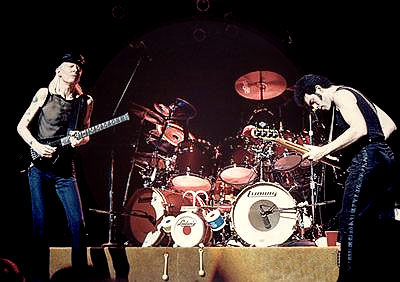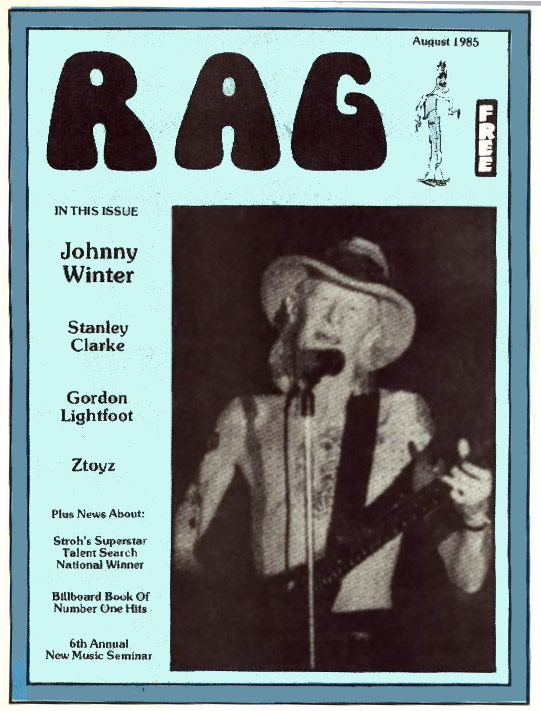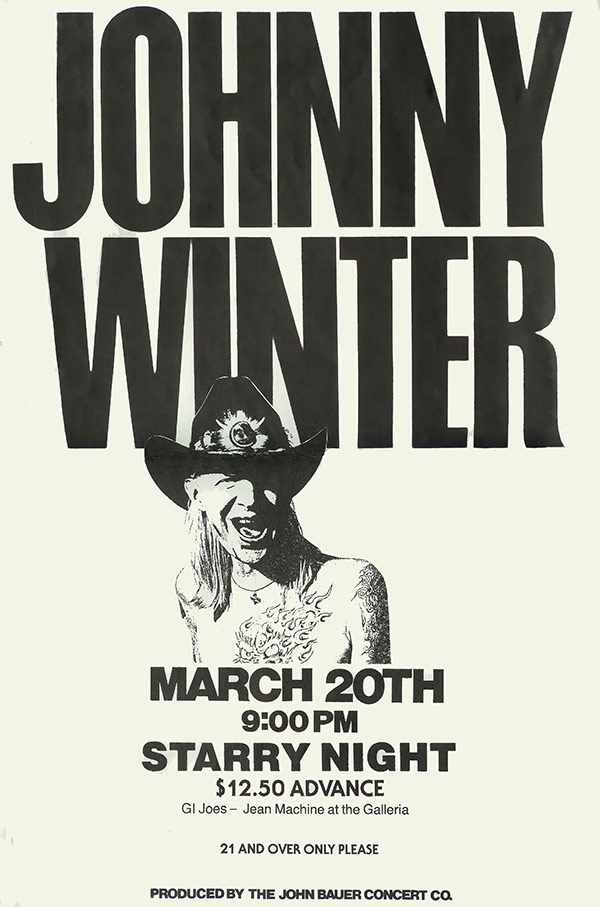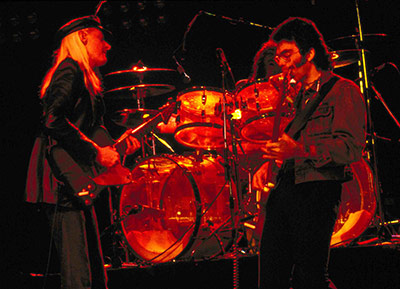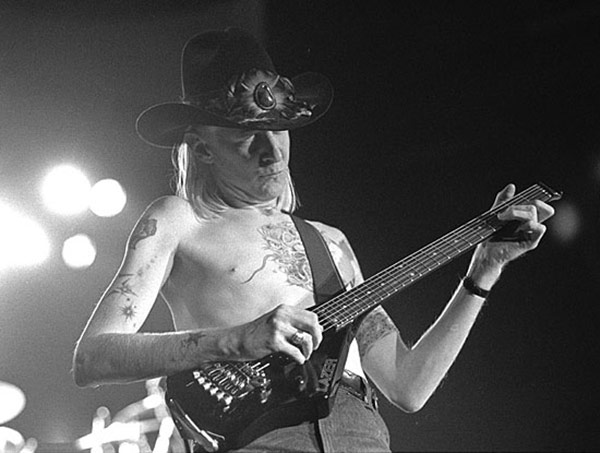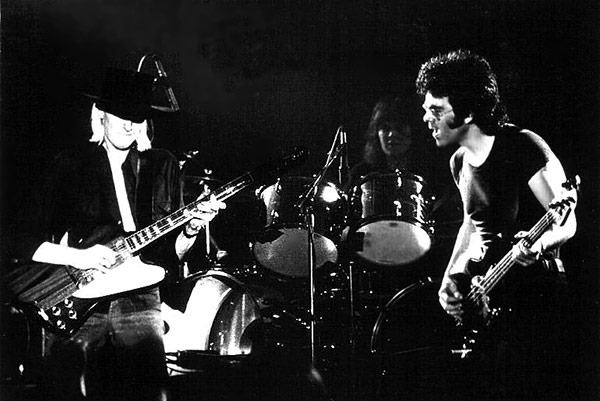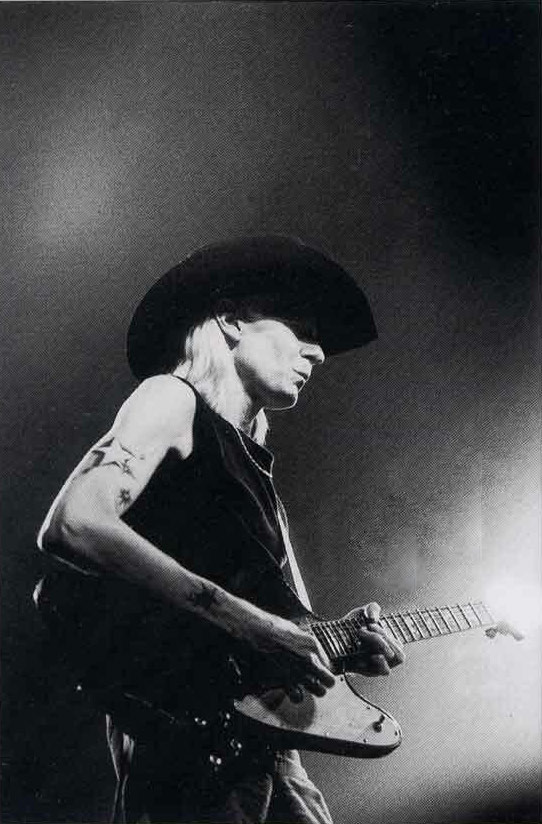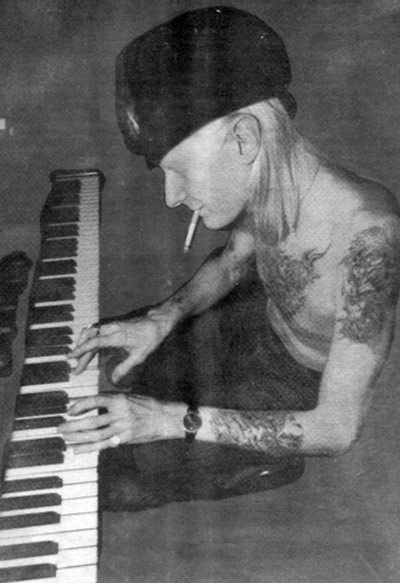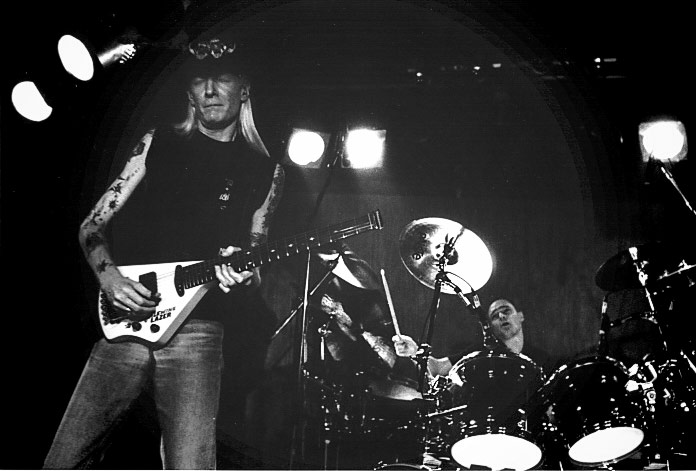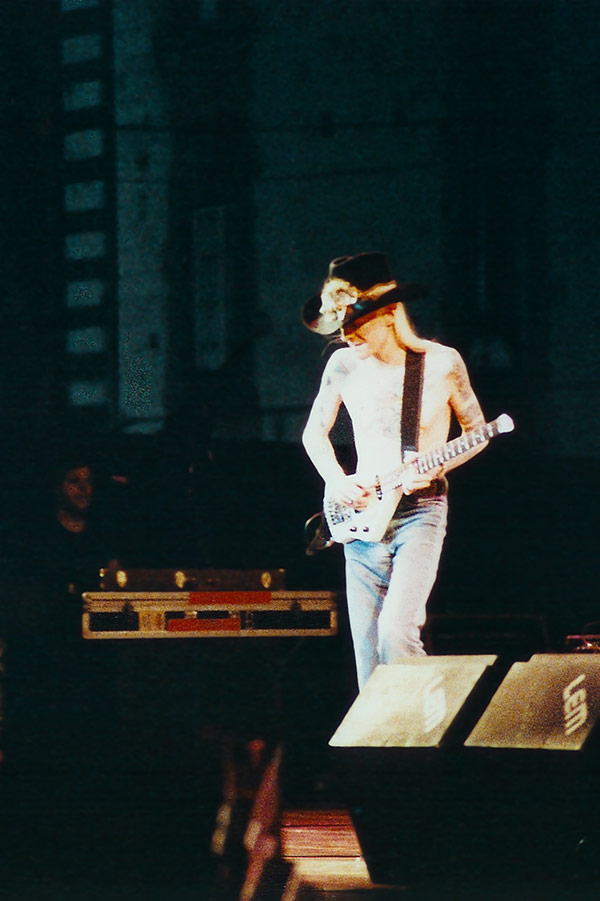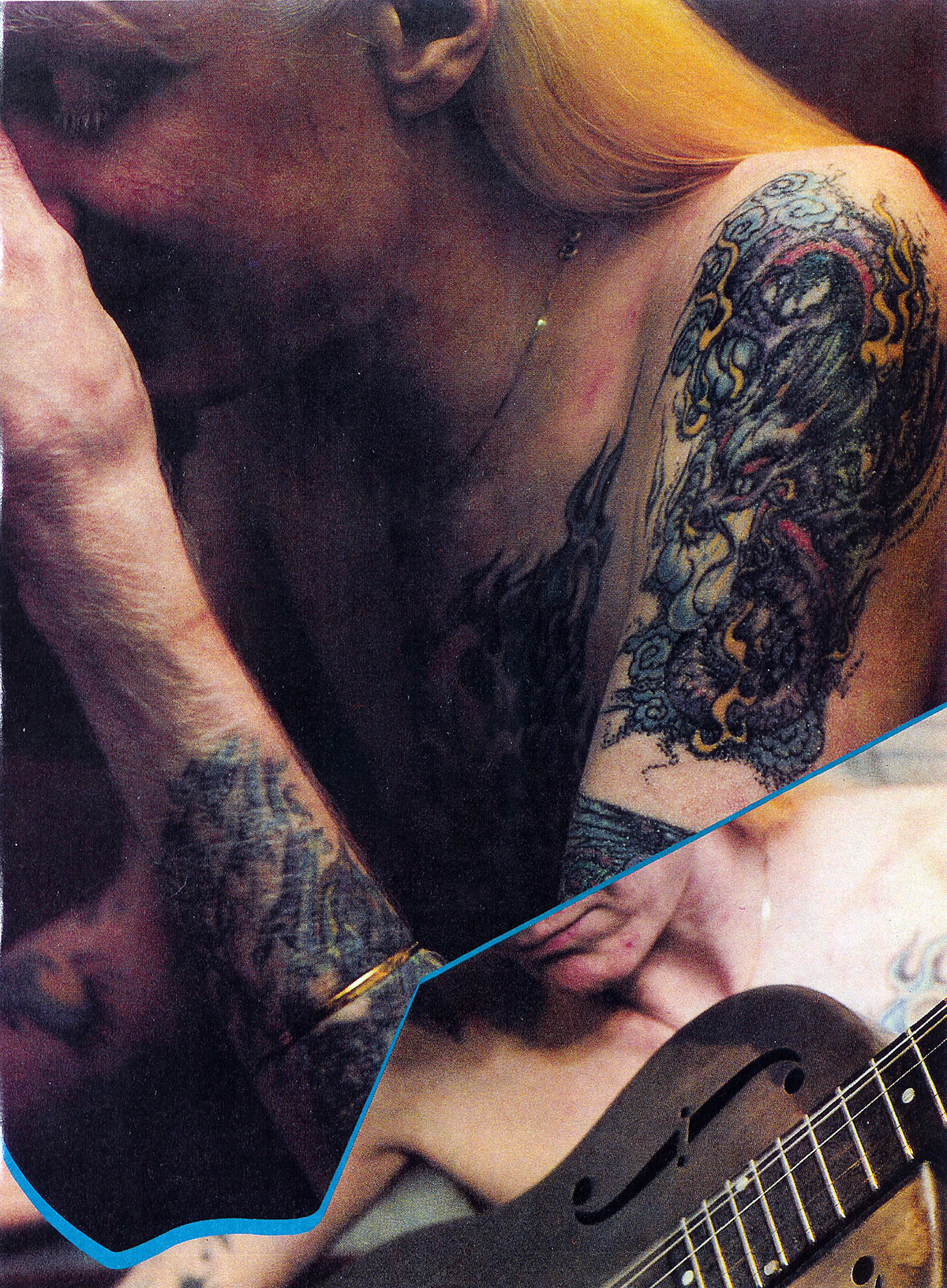Johnny Winter RAG Magazine August 1985
Photos & Story by Dino Fedele
My own premier guitar hero was seen this month in an exhilarating performance at the Button South. Since the release of his current album, Guitar Slinger, Johnny Winter has returned (unsurpassed, I might add) to the blues style which is definitive of this unique axeman. The band returned this time, again, as a powerhouse trio. Tom Compton replaced former band member Bobby T. on drums, and on bass guitar and harmonica was longtime friend and touring band member, Jon Paris.
While most of the set was dominated by songs from Guitar Slinger, we did get a taste of some of the material to be included on the new Serious Business album, which is scheduled for release in August.
The show kicked off with “Don’t Take Advantage of Me” which was a real steady groove and “I Smell Trouble,” a song with a slow backbeat and real dazzling guitar picking on J.W.’s part. “Mad Dog” has a swing style feel to it, while “Lights Out” is reminiscent of 50’s style rock.
A change of guitars is in order as Johnny pulls a slide bar out of his pocket and the open tuning reveals the familiar strains of “Highway 61 Revisited.” This segment of the show also features Jon Paris’ astute harmonica passages, particularly on “Murder My Baby,” a new tune from the upcoming LP, then again on “Iodine in My Coffee,” a song whose passages seem to have been plundered and filtered from Johnny Winter’s “Backdoor Friend.” Not wanting to play second fiddle to a slide guitar, Paris’ harp spawns a conjugation between the two that extends the boundaries of the blues.
Although the crowd was charged up throughout the entire show, their cheering went doublefold when the band closed the set with “Johnny B. Goode” and the Stones’ classic, “It’s All Over Now.”
All of Johnny Winter's records have been alluring in my collection but it’s doubtful that Johnny will ever match the spontaneity, the epic performances on the 1969 album, Johnny Winter. This latest, Guitar Slinger, is probably the closest he’s come to it and, judging the material that will be on Serious Business, well, let’s just say I can't wait. As far
as live performances, there are few I can put on my list of “can’t miss.” Johnny is one of them. In our eight years and more of publishing the Rag, Johnny Winter has been covered more than any other performer, and if you'll pardon my self-indulgence, you'll be seeing him again, I’m sure.
